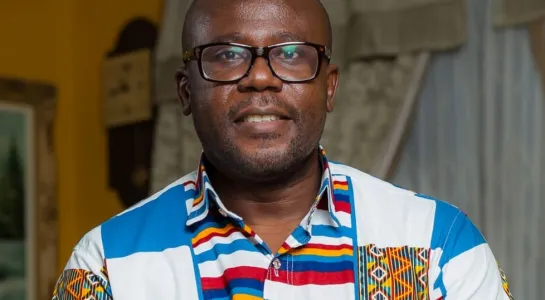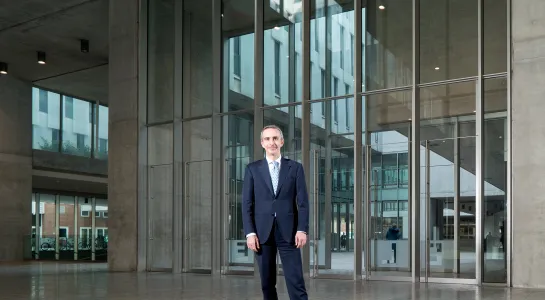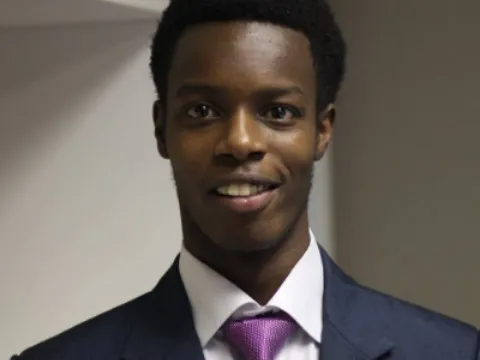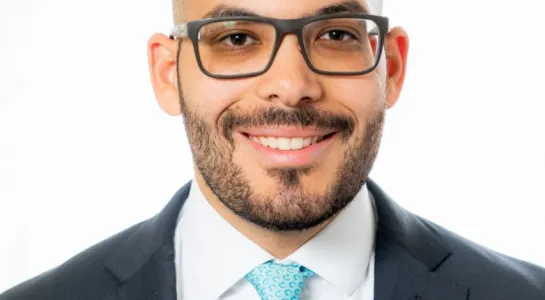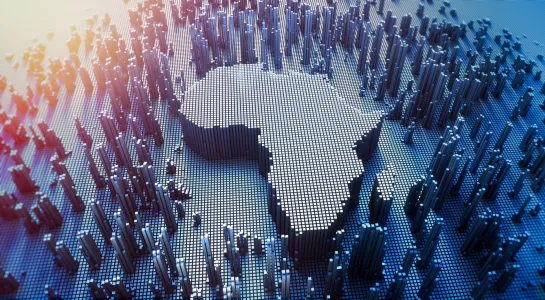
The African Challenge
Africa is a continent of real potential but also of great complexity. After thirty years of growth in Asia and the development of globalization, Africa is undoubtedly the new frontier for growth. Europe, which is linked to Africa by geographical destiny, sees its analytical models called into question. If the world is changing rapidly, Africa is, in some aspects, transforming at higher speed. The issue is understanding Africa's diversity, opportunities, and constraints to define a new era of relationships. It's not just a matter of Europe developing relationships with the 54 countries that make Africa. European countries will also have to build new bilateral or multilateral relationships with groups of African countries, depending on their projects and the nature of their alliances.
Challenges can mask opportunities
The African continent is admittedly a land of many challenges, making it even more complex. Regional security issues, armed conflicts, and climate migrations impact populations in many regions. In 2022, we counted over 40 million people in Africa who have been displaced because of conflict and insecurity. The impacts of climate change also displaced around 7 million people. They are fleeing food insecurity, famine, drought, and natural disasters. However, it should be emphasized that 96% of these migrations occur within Africa. We can cite three significant conflict areas in Africa: 1) The countries of the Great Lakes region, including one of the continent's wealthiest countries, the Democratic Republic of Congo; 2) The Sahel countries, which are facing insurgencies by Islamist groups (and let's recall that Western countries, led by France, have been unable to control acts of terror in this region); 3) East Africa, that also has its major share of insecurity.
But all these challenges should not overshadow the development opportunities the young continent offers.
Opportunities are more numerous and inviting
Let's start by not limiting our understanding of opportunities just in terms of natural resources, minerals, and arable land. Demographics is undeniably an asset since Africa's population is growing significantly, but there's still a lot to be done to benefit from what's known as the demographic dividend. Overall, African countries still need a lot of infrastructure. The African Development Bank estimates the need for infrastructure investment between $130 and $170 billion annually, with a financing gap reaching $100 billion in certain years.
Urbanization is set to transform Africa over the coming decades. The number of cities has doubled since 1990, and cities have tripled in size over the same period. Demographic pressure can turn this exceptional urbanization dynamic into an excellent opportunity for African countries implementing bold and innovative public policies.
Africa needs to develop industry. It must be said that African countries have understood the need to generate value by transforming their raw materials locally. To achieve this goal, countries must engage with the dynamics of industrial investment as part of global value chains. Morocco, for example, has successfully integrated its industry into global value chains such as automotive, aeronautics, and offshoring. Africa needs to create more than 12 million jobs a year to meet the needs of the young populations entering the job market. Investments in the manufacturing industry are, therefore, pivotal. For example, we observe a transfer of labor-intensive productions, such as in the textile sector, from China to Ethiopia.
Africa still saw, in 2022, an increase in bulk exports, while maritime container freight growth has peaked globally. Africa is the only continent to show a rise in dry bulk carrier stopovers in 2022 (+2.5%). This demonstrates the potential to process raw materials and benefit from the momentum of the African Continental Free Trade Area (AfCFTA) agreements, given that intra-regional trade in Africa represents less than 20% of the total. The AfCFTA agreements alone are expected to boost intra-African freight by 28% and sea freight demand by 62%.
Exploring new areas of economic cooperation
Europe and its member countries need to explore new cooperation models and adopt new approaches. Africa is a complex market, but one that has aroused the interest of economic powers such as China, Russia, Brazil, Turkey, Great Britain, and the Gulf countries. The priority sectors are numerous. They include the agri-food industry, the development of renewable energy, means of mobility and transport, and waste management.
To succeed in shaping these new forms of cooperation, African countries expect mutual respect in negotiations, understanding of contexts and their specificities, and collaboration focused on results and impact on populations. This will require three essential levers: contribution to vocational and higher education, and cooperation in research; commitment to sustainable development, considering the diversity of local practices and traditions in Africa; strengthening innovation and entrepreneurship serving communities and societies.
In Africa, innovation is everywhere and is often frugal. Entrepreneurs innovate and create businesses out of necessity to fill the gaps left by municipalities and states. As an illustration of this dynamic and its potential, let's cite the case of the collaborative Ushahidi platform created in Kenya in 2007 during the post-election riots to enable Nairobi's inhabitants to get around by avoiding dangerous areas. Ushahidi has become a mapping tool used in many parts of the world, and is used by the United Nations. These entrepreneurs express their audacity with disarming simplicity: "If it works in Africa, it will work anywhere".
Every European country needs to explore its strengths to reinvent its relations with African countries. One of the strategies may consist, for instance, of building a partnership with an African hub with a continental anchorage. It can be a significant lever that can serve as an accelerator of relations on the field.
Italy has undeniable strengths in its fabric of SMEs, which work in ecosystems and organize themselves to expand worldwide. There are many activities and businesses to can be co-built with African entrepreneurs. To do so, we need to stop questioning ourselves on Afro-pessimism or Afro-optimism and start acting with Afro-pragmatism.



